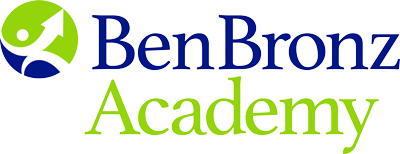A person with a learning disability has difficulty taking in, remembering, or expressing information. It’s not a reflection of their intelligence or attitude. If your child has a learning disability, she or he has trouble with at least one of these areas:
- Understanding what she reads
- Understanding basic mathematical concepts (like adding or multiplying)
- Listening
- Retaining information
- Expressing thoughts and ideas in writing
- Expressing thoughts and ideas verbally
No. Most children with a learning disability are of average or better than average intelligence. They are not lazy. Having a learning disability also does not mean that your child has poor vision or hearing, is mentally retarded, has a physical handicap, is emotionally disturbed, or suffers from a cultural disadvantage. It does mean that your bright child learns and processes information in a way that’s different from most people.
Yes. Most learning disabled people have strong talents in some areas. They may be talented in arts, sports, or science. They just struggle terribly in one or two areas – most often reading. Many of our students have gone on to graduate from college and find successful careers.
Have your child evaluated by a qualified professional. If your child exhibits some of these signs he or she may be struggling with a learning disability:
- Difficulty with reading, writing, spelling, and/or using math concepts in contrast with average to superior skills in other areas
- Poor handwriting
- Trouble listening to a lecture and taking notes
- Easily distracted by noise or visual stimulation – unable to pay attention
- Trouble understanding and following directions
- Confuses/reverses some letters (‘b’ and ‘d’, for example) or words (like ‘was’ and ‘saw’) and numbers (sees 41 but interprets the number to be 14)
- Omits or adds words when reading
- Repeatedly forgets things, loses things
- Appears clumsy and poorly coordinated
- Confuses left and right, gets lost
- Often is late for class, cannot sense time
- Misinterprets subtleties in language – tone of voice – sarcasm
MetaLearning is the centerpiece of the Ben Bronz Academy Lower School (grades 2-6) program. It’s a thinking skills program that expands students’ language and cognitive skills. It does that by building awareness of the thinking process we use when we are problem-solving.
We carefully choose students and only accept those we are confident we can help. We focus on the individual needs of each student. Each class is small (from one to ten students.) And we have about one teacher for every three students.
Ask any mediator at the Academy and you’ll get a good, short list. Here’s one list of some resources other parents have found educational and helpful:
Books
The Dyslexic Advantage by Brock L. Eide, M.D., M.A. and Fernette F. Eide, M.D.
Late, Lost, and Unprepared: A Parents’ Guide to Helping Children with Executive Functioning, by Joyce Cooper-Kahn, Ph.D. and Laurie Dietzel, Ph.D
Laughing Allegra: The Inspiring Story of a Mother’s Struggle and Triumph Raising a Daughter With Learning Disabilities by Anne Ford
Scattered: How Attention Deficit Disorder Originates and What You Can Do About It by Dr. Gabor Mate
Websites
SpEdConnect
The Yale Center for Dyslexia & Creativity
Decoding Dyslexia-CT
DyslexiaHelp at the University of Michigan
Sources:
www.vmi.edu/uploadedFiles/Academics/Academic_Support/
Disabilities_Services/Famous%20People%20with%20Learning%20Disabilities%20-%20updated.pdf
www.greatschools.org/special-education/health/696-famous-people-dyslexia-ld-or-ad-hd.gs?page=2
www.businessinsider.com/ceo-learning-disabilities-2011-5#but-watch-out-for-the-notorious-ceo-disease-14
Yes. They’re everywhere. You’ll find long lists on the Internet. Here are just a few:
- Alexander Graham Bell
- Ben Franklin
- Cher
- Jay Leno
- Agatha Christie
- George Patton
- Richard Branson
- Danny Glover
- Erin Brockovich
- Whoopi Goldberg
- Walt Disney
- Nelson Rockefeller
- Albert Einstein
- Winston Churchill
- Thomas Edison
- Tim Tebow
- Steven Spielberg
- Charles Schwab
- Governor Dannel Malloy
- Ingvar Kamprad (Ikea founder)
- Bill Hewlett
- Steve Jobs
- Ted Turner
- Tommy Hilfiger
